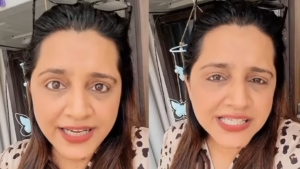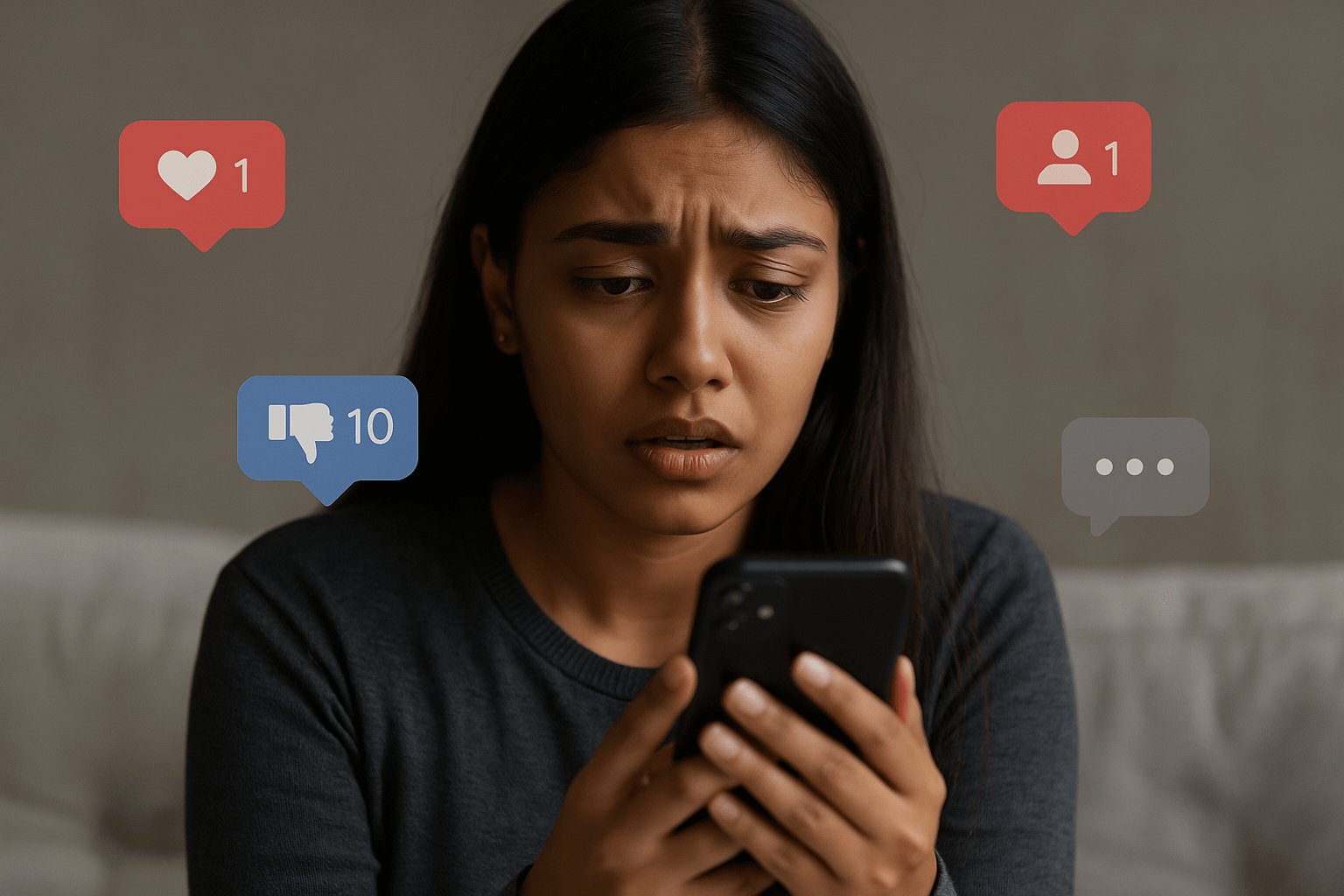India’s online community has seen heated debates over cancel culture in India. On one side, many young people see social media call-outs as a way to hold influencers and celebs accountable. On the other, critics worry that even minor mistakes can trigger a digital mob. Recently (with 2025 trends shaping youth discourse), incidents from Instagram to cricket commentary have sparked fierce backlash. This makes many ask: are we learning lessons or fueling a witch-hunt?
Notable Backlash Incidents
Consider the case of Bengaluru-based influencer Sugandh Sharma (Sept 2024). She joked that “Bengaluru will go empty if all North Indians leave,” and her reel quickly went viral – and not in a good way. Angry viewers and Kannada groups demanded apologies. Sugandh posted a tearful video saying, “Recently, I made reels about Bengaluru… I love each and every language and culture of India and I respect everybody… I don’t want to hurt anyone because of me.”newindianexpress.com. Her employer even sacked her amid the furor. This is a classic instance of social media backlash: a clip goes viral, crowds criticize, the influencer apologizes and faces consequences.
I love each and every language and culture of India and I respect everybody… I don’t want to hurt anyone because of me.”newindianexpress.com. Her employer even sacked her amid the furor. This is a classic instance of social media backlash: a clip goes viral, crowds criticize, the influencer apologizes and faces consequences.
Sports commentary also felt the heat. In Oct 2024, former cricketer Sanjay Manjrekar commented on-air, “I don’t pay much attention to players from North India”sports.ndtv.com. Fans were outraged. On Twitter, messages flew: one user bluntly wrote “Sack him”sports.ndtv.com. Even without explicit apology, this shows how cancel culture can extend beyond movies and YouTube: here a one-line remark led to demands for censure.
Another flashpoint was the viral “India’s Got Latent” incident (late 2024). A YouTube panel hosted by Samay Raina featured Ranveer Allahbadia and Apoorva Mukhija among others. Ranveer asked a contestant a risqué “would you rather” question about his parents, which many found offensive. Netizens erupted. FIRs were filed against panelists and organizers, and YouTube took down the episode timesofindia.indiatimes.comtimesofindia.indiatimes.com. Apoorva Mukhija (the “Rebel Kid”) publicly apologized on Instagram: “I have hurt a lot of people… I am very, very sorry. I should have been more mindful of my words… I promise I will do better going forward… I just hope you guys can forgive me”hindustantimes.com. This quote captures a common outcome – an influencer saying sorry after a viral controversy, illustrating how quickly fun can turn serious online.
Netizens erupted. FIRs were filed against panelists and organizers, and YouTube took down the episode timesofindia.indiatimes.comtimesofindia.indiatimes.com. Apoorva Mukhija (the “Rebel Kid”) publicly apologized on Instagram: “I have hurt a lot of people… I am very, very sorry. I should have been more mindful of my words… I promise I will do better going forward… I just hope you guys can forgive me”hindustantimes.com. This quote captures a common outcome – an influencer saying sorry after a viral controversy, illustrating how quickly fun can turn serious online.
Accountability or Overkill?
These examples show how quickly a post or joke can snowball. For supporters, such backlash is good accountability. When harms or slurs go unchecked, social media allows ordinary people to demand apologies or penalties. Some argue that public figures deserve this scrutiny. As one commentator noted, cancel culture “holds public figures accountable” for past or present remarks.
But others see danger. Bollywood star Randeep Hooda called boycotts and cancel campaigns a mere “social media hoax.” Speaking at a youth summit, he quipped, “Boycott culture is a social media hoax… I don’t care about it at all. I have been cancelled many times. I am here, bro.”hindustantimes.com. Randeep’s shrug – “I have been cancelled many times” – suggests he feels the outrage is often overwrought. Comedian Kunal Kamra has similarly joked that being “canceled” only gives him more material. Critics say constant online mobbing can chill free expression: if every misstep sparks an internet tribunal, creators may self-censor.
Young Indians are divided. Some youths appreciate “seeing the powerful called out,” while others worry that online outrage can go too far, targeting minor transgressions or even out-of-context jokes. The real debate is whether social media backlash is healthy debate or just a modern witch hunt. Is it justice when a public misstep is punished by peers, or is it online vigilantism?
The Way Forward
What’s clear is that influencer controversies and cancel culture are shaping India’s digital conversation. In 2025, trends show more students and young professionals discussing these issues on X (Twitter) and Instagram. Some educational panels and groups have even held debates on “cancel culture vs freedom of speech.” Each case – like Sugandh’s apology or Apoorva’s emotional video – gets dissected for lessons.
In the end, the line between accountability and hysteria remains blurry. Indian youth opinions often hinge on context: Was the remark meant maliciously? Did the person apologize? Will real harm change? Cancel culture discussions force people to ask tough questions: When is a viral call-out constructive? And when does it become harassment?



